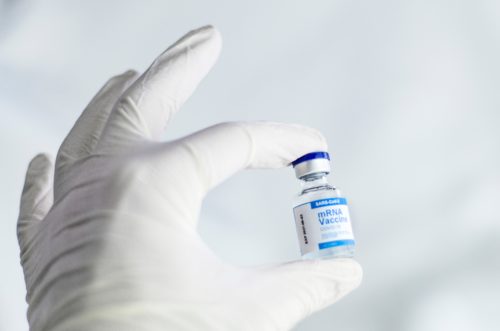
What does “fully vaccinated” mean today?
In the face of the widening spread of the SARS-Cov-2 variant, the rise in breakthrough cases, and data that suggests a slight waning effect over time of vaccines, FDA acted yesterday to protect some of the most vulnerable by amending the Emergency Use Authorization of the mRNA vaccines. People who have had organ transplants and people who are immunocompromised may now get a third dose.
There has also been some data suggesting a possible waning in individuals over 60 but there is no change for that group, so far. Israel, which has been a reliable bellwether for how the pandemic plays out, has authorized a third dose for those over 60, and it is likely only a matter of time before the U.S. follows suit. The sooner the better.
Extending protection to the most vulnerable is certainly a good thing. But there are always unintended things that crop up. We are concurrently in a phase where a growing number of institutions are requiring vaccination of employees and where businesses, theaters and restaurants will be asking for proof of full vaccination. As third doses become the norm, particularly only for specific populations, the definition of “full vaccination” shifts, depending on who you are. A transplant recipient today would be considered “fully vaccinated” after a third dose. In the near future, the same may be said for a person over a certain age. In other words, verification of status becomes a more complicated task.
The little vaccine cards do have two more blank entries that allow for entry of “other” – but at some point they will not be able to keep up. It begs the need (further) for reliable digital means of proof, such as the New York Excelsior Pass. For political reasons in some jurisdictions this is unthinkable, but for public health reasons it is going to eventually be an imperative. However, there will need to be a system whereby residents of any state can, if they want, avail themselves of such an instrument.
For those venues now seeking verification of status, the question arises whether or not they have to first determine a person’s characteristics – transplant status, immune status, age – before true verification can actually occur. For that matter, when considering persons vaccinated outside the United States, we may have to ask what type of vaccination they have received. Would an individual who received a Chinese or Russian vaccine be considered fully vaccinated. An if you are over 60 and from Israel, fully vaccinated now means someone with a third dose, but not if you are over 60 and from the U.S. In short – the term “fully vaccinated” does not refer to a monolith, but to an ever-increasingly multi-faceted set of people who have received some sort of vaccine and in varying degrees and number.
We are feeling our way through this, necessarily responding to a quickly changing landscape. It requires patience, level-headedness, innovation and a view of the long game here. But as we adjust the sails to better navigate the pandemic, we must also take care to keep up on all fronts.
Photo by Spencer Davis on Unsplash

